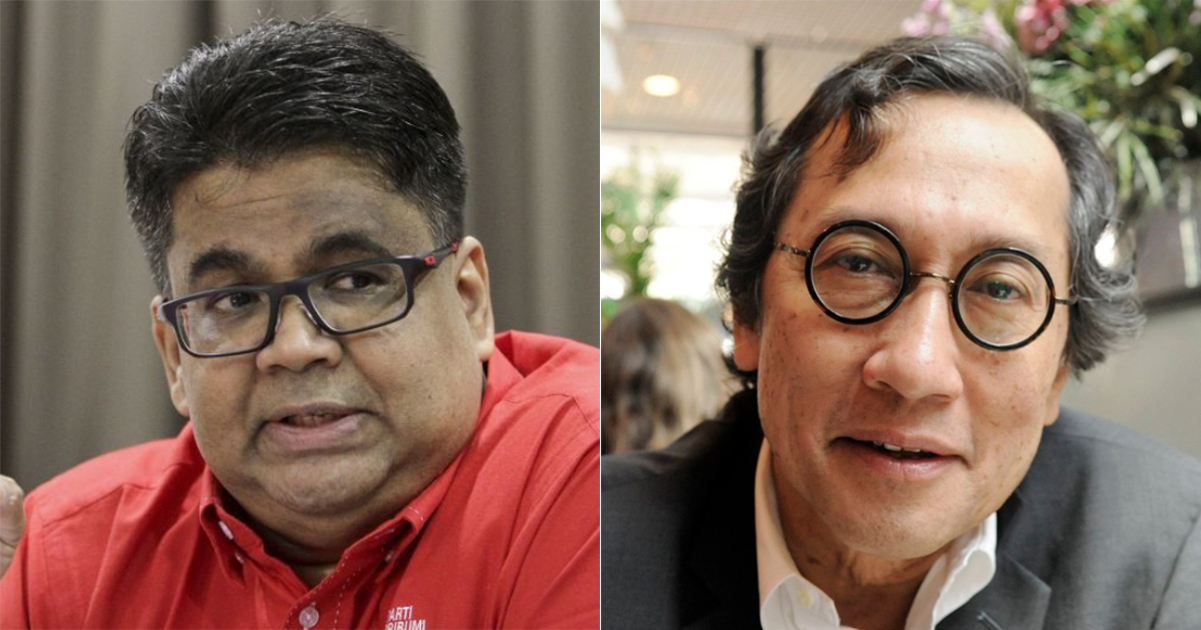On Dec. 9, Malaysiakini and The Malay Mail published a commentary by Rais Hussin, warning Singapore of "pain by a thousand cuts" in the ongoing bilateral dispute.
Rais is a senior member of Malaysia Prime Minister Mahathir Mohamad’s political party, Parti Pribumi Bersatu Malaysia (PPBM).
The commentary drew reactions from a variety of Singaporeans, including Bilahari Kausikan, the Chairman of the Middle East Institute and former Permanent Secretary of Ministry of Foreign Affairs.
In a Facebook post, Kausikan, a retired diplomat, called Hussin's comments "very typical" and an example of why small states should never behave as one.
Hussin makes the political personal
Kausikan's remarks then drew a pointed reply from Hussin, who responded in an opinion piece, "The implied SM complex of Malaysia: An atypical response to Bilahari Kausikan", published on Dec. 11 in The Malay Mail.
The piece saw Hussin calling Bilahari a "washout".
Hussin questioned the direction of Bilahari's attack, wondering if it was aimed at Kishore Mahbubani, dean of the Lee Kuan Yew School of Public Policy.
This point is in reference to a rebuttal in July 2017 by Bilahari over Mahbubani's comment.
Mahbubani had previously said that "small states must always behave like small states", a comment that was rebutted by much of the establishment in Singapore.
Hussin also questioned Bilahari's ability to read Malay and understand Islamic terminology, accusing Bilahari of supposedly painting Hussin's statement with Islamic/ Malay overtones in stating that Malaysia has always attempted to domesticate (menjinakkan) Singapore.
Hussin noted that it did not matter what species of dog Singapore was, but that rather Singapore should not "bite and bark at every living thing".
Hussin also wrote: "Even your sheer howl can be deafening (which was misspelled as 'defeaning' in his article)".
More accusations levelled against Bilahari
This then segued into Hussin's next accusation of Bilahari supposedly aligning himself with the Malaysian far-right, as he "carried a huge Malay complex" and "that Malays or Malaysia will always want to be the master, rendering everyone else as a 'servant'.”
Hussin further implied that Bilahari also painted the relationship between Singapore and Malaysia as akin to a "master-slave relationship" and "sado-masochists" by "accusing Malaysia of trying to make a 'subordinate' out of Singapore".
This was an accusation that supposedly had no historical basis as "Malaysia has never wanted Singapore to be a servile country at all" and independence was granted "without a single case of blood shed or sabotage".
Hussin then attacked Bilahari for his pieces published in Nikkei Asian Review, The Japan Times, The Straits Times and the South China Morning Post, adding that Bilahari had confused "his own desires to evangelise to all countries big and small, as that of Singapore's own position too".
Hussin next cited a hypothetical scenario of Indonesia insisting its right to name two naval vessels after the two Indonesian commandos hung by Singapore for their role in the McDonald House bombing and building their monuments across the Singapore High Commission in Jakarta.
This led to his question if Bilahari would continue to advise the Singapore Ministry of Foreign Affairs in such a scenario, "that this is very “atypical” of what big powers do?"
Ad hominem attack
Hussin then launched a personal attack on Bilahari:
"... (he) is not a member of any known political party in Singapore nor an active member of the Singapore diplomatic corp. He is, a has-been only made relevant by his vicious attack of Kishore Mahbubani, which the entire Singapore cabinet seems to concur."
Hussin also criticised Bilahari as a "washout" for supposedly being ignorant of how nobody in the Malaysian Cabinet smoked cigars, unlike members of the previous Cabinet.
Bilahari dismisses Hussin
In response to Mothership.sg queries for his response, Bilahari said:
"This character is just repeating what he said in the first place with the threat toned down. The Malaysians start a bilateral issue when there was none, and then this character asks us to be generous and considerate about the problem they created in the first place. If that is not an attempt at ‘menjinakkan’ -- trying to condition us in an almost Pavlovian manner to subordinate our national interests to theirs -- I don’t know what it is. Perhaps the instinct is so deeply embedded that he does it unconsciously. But that is being overly generous. I see no point in engaging him any further because this attitude is not something that can be modified by exercise of reason because it is in the first place an essentially unreasonable attitude."
And that's that.
Top image of Rais Hussin from Malay Mail & Larry Luxner
If you like what you read, follow us on Facebook, Instagram, Twitter and Telegram to get the latest updates.
